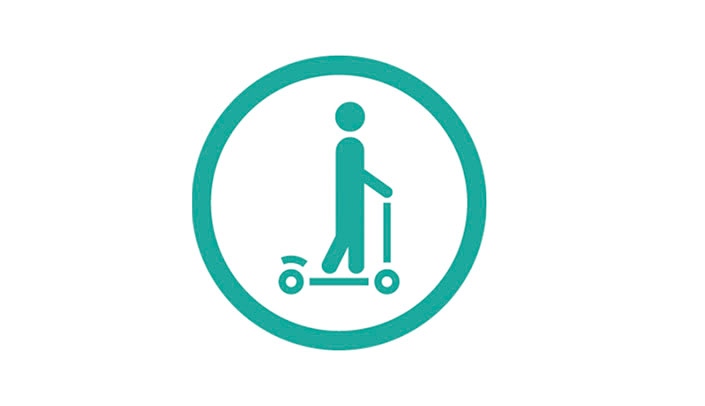This month, the City of Omaha announced it is testing beginning a pilot program to test dockless shared electric scooters. The program, which is scheduled to run through November of this year, will allow people to rent electric scooters for a short period of time.
Through the duration of the city’s pilot program, UNMC will be enacting
a temporary campus policy to support electric scooter usage to and from campus while maintaining student, faculty, staff and guest safety on campus.
Under the policy, shareable electric scooters can be operated to travel to and from campus and between campuses, but must be left at established drop-off locations on the campus perimeter prior to entering campus.
Please note: This policy is related only to the dockless scooters involved in the program the City of Omaha is piloting with various rental scooter providers. The locations at which dockless scooters can be left specifically applies to those rental scooters only. The policy does not pertain to any privately owned scooters.
The locations at which the scooters can be left do not have power available. The scooter rental companies are responsible for any/all charging needed.
Dropoff locations are:
- Lot 33, on the corner of 41st and Farnam streets;
- Annex 15 (a.k.a., the Blue Building), corner of Saddle Creek Road and Douglas Street;
- 45th Street, at the bike rack between the Fred & Pamela Buffett Cancer Center and Lot 2;
- the south side of Student Life Center at bike rack (in Lot 15); and
- Lot 64, at the corner of 39th and Marcy streets.
A map of drop off locations can be found here.
Following the conclusion of the city’s pilot program and any decisions by the city to continue use of sharable scooters, UNMC will revisit its interim policy for any edits and open the policy up for public comment before a final policy would be formalized.
Those who plan to use the electric scooters are encouraged to keep safety in mind. According to a Centers for Disease Control and Prevention (CDC) study, for every 100,000 trips on a scooter, 20 injuries occurred. Almost half of those injuries involve head trauma, with 15% suffering a traumatic brain injury.
“Even though it may not look cool, the trade-off is protecting one of your most valuable organs — your brain,” said Zach Bauman, D.O., assistant professor of surgery.
More information about the city’s pilot program can be found here.
